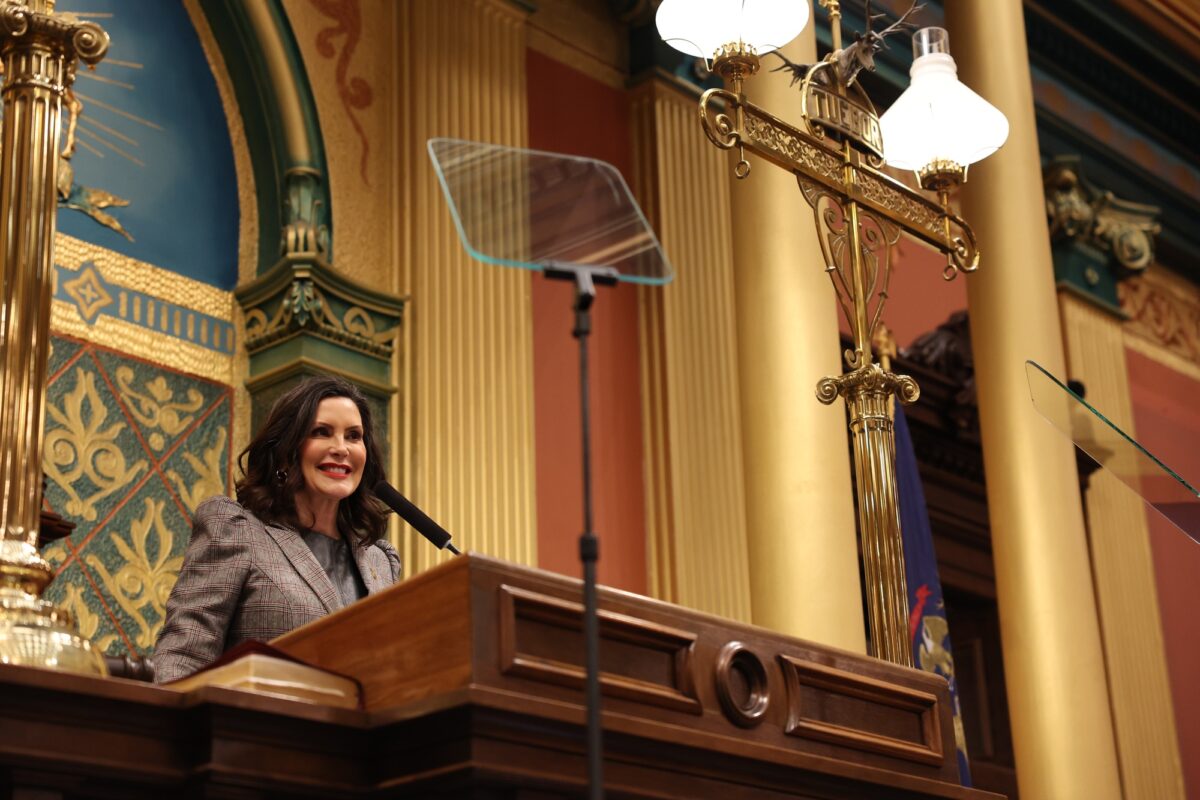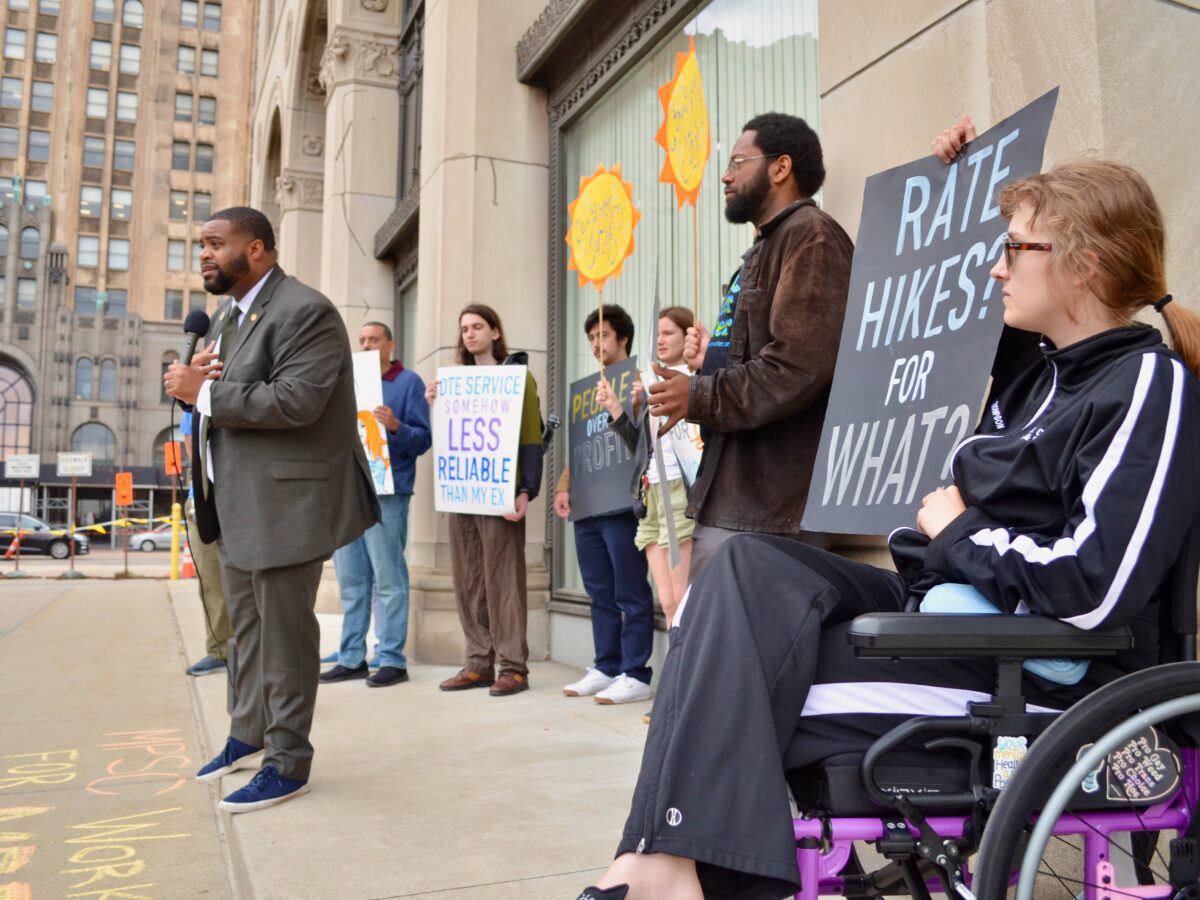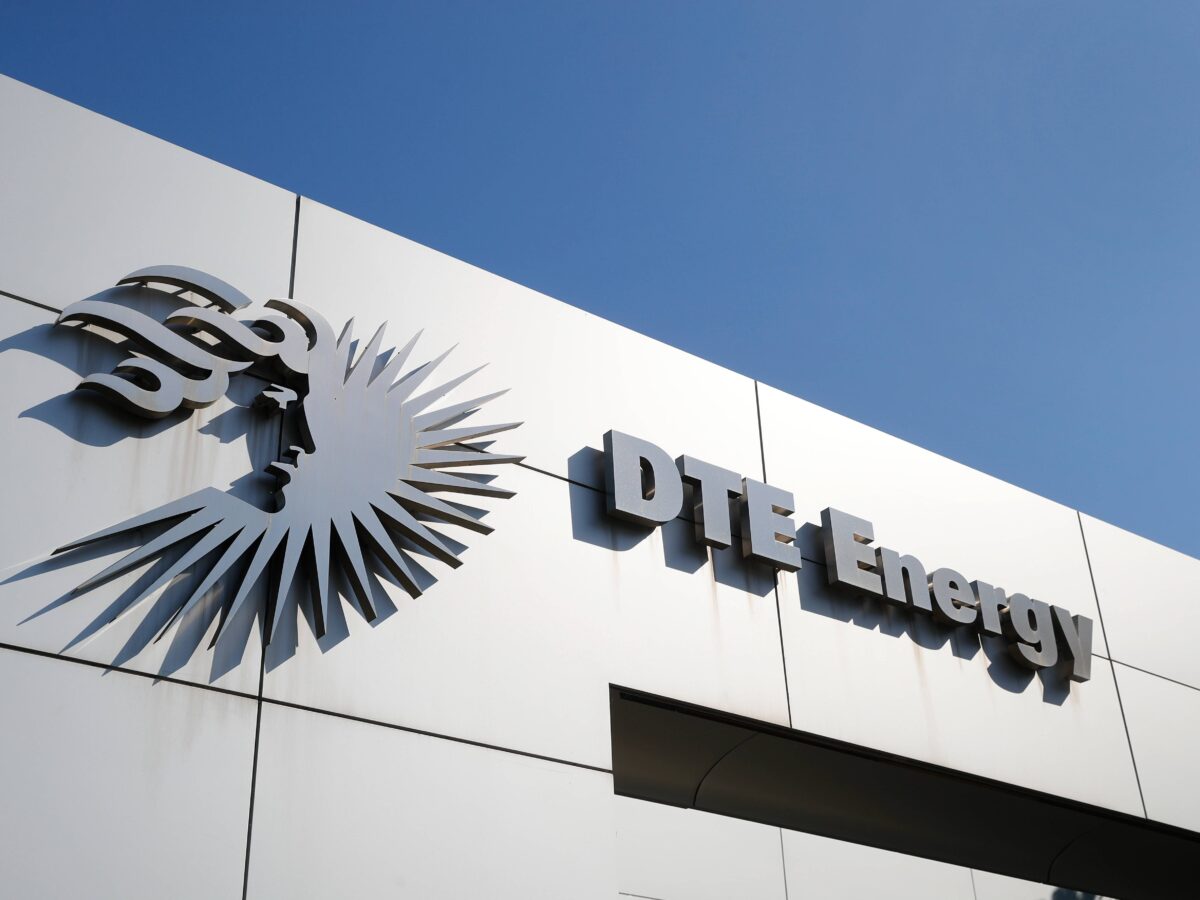Overview:
-Michigan Public Service Commissioner Alessandra Carreon's term expires July 2.
-Gov. Gretchen Whitmer is not expected to reappoint Carreon.
-Carreon is a voice for clean energy and vulnerable communities, says coalition of more than two dozen environmental and advocacy groups.
A Michigan regulator who oversees DTE Energy and Consumers Energy could be out of a job next week.
Gov. Gretchen Whitmer plans to replace Alessandra Carreon, who is widely seen as sympathetic to renewable energy, after two years on the Michigan Public Service Commission, The Detroit News reported June 12. The newspaper cited two unnamed sources with direct knowledge of the discussions in the governor’s office.
Carreon is the first Asian-Pacific Islander on the commission and emerged as a voice for clean energy and vulnerable communities, according to a June 18 letter to Whitmer signed by representatives for the Sierra Club, Soulardarity, the Michigan Environmental Justice Coalition, and over two dozen other organizations.
Advocates who spoke with Planet Detroit praised Carreon’s efforts to improve the MPSC’s public engagement process.

Carreon is one of three commissioners serving on the MPSC, which regulates investor-owned electric and gas utilities. MPSC commissioners serve six-year terms; Carreon was selected two years ago to fill a partial term that ends July 2.
“Choosing to replace her after barely two years in office, while utilities press for higher rates, prompts concerns that this unprecedented move could be driven by outside pressure,” said the letter from advocacy groups to Whitmer.
Carreon and MPSC spokesperson Matt Helms declined to comment for this story.
DTE donations to Whitmer draw scrutiny
The state’s two-largest utilities, DTE Energy and Consumers Energy, spend millions to influence lawmakers and have over $1 billion on the line with rate hike requests under consideration by the MPSC, according to advocacy groups.
The next commissioner will also help decide on the utilities’ upcoming integrated resource plans. These are long-term plans for how utilities deliver power that have major implications for climate action and utility affordability.
“Whitmer has exclusive authority to appoint the commissioner and … she has by far, of any elected official, taken the most money from direct giving from DTE,” Bryan Smigielski, the Sierra Club’s Michigan campaign organizer, told Planet Detroit.
The DTE-affiliated dark money nonprofit Michigan Energy First gave $750,000 to a group supporting Whitmer in 2022, according to The Detroit News.
Whitmer spokesperson Stacey LaRouche didn’t comment directly on political donations to the governor.
“The State of Michigan has more than 230 boards and commissions. Governor Whitmer takes the appointment process seriously,” she said in response to questions about the upcoming MPSC appointment.
DTE spokesperson Jill Wilmot said the utility “is not involved in the selection of Michigan Public Service Commission (MPSC) commissioners,” and works with commissioners to “ensure we’re providing safe, reliable, clean and affordable energy to our customers and the state of Michigan.”
Consumers Energy spokesperson Katie Carey said Consumers “is not aware of what Governor Whitmer will choose to do regarding an appointment when Commissioner Carreon’s term expires at the end of the month.” The utility will work with the MPSC to deliver “reliable and affordable energy service for our Michigan customers,” she said.
Consumers Energy files $436 million rate hike request: Customer advocate says it’s ‘slap in the face’
Consumers Energy says increase will improve reliability, while advocacy group says the utility needs to focus on maintenance rather than expensive infrastructure upgrades.
Detroit lawmaker calls out DTE Energy’s rates, reliability ahead of MPSC town hall
Detroiters face mounting challenges as high energy bills and power outages strain their finances. State Rep. Donavan McKinney advocates for legislation to curb utilities’ political influence and urges the MPSC to prioritize ratepayer voices in decision-making processes.
DTE files for $574 million rate hike, its second-largest request, months after its last increase
DTE Energy’s $574.1 million rate hike proposal aims to boost infrastructure and clean energy, raising Michigan residents’ bills by $13.50 monthly. Critics, including Michigan Attorney General Dana Nessel, challenge the plan, demanding proof that DTE’s expenses and rates are fair and justified.
Next commissioner could shape Michigan energy for decades
Whomever Whitmer appoints to the MPSC will have significant power to influence Michigan’s energy future by deciding on Consumers and DTE’s integrated resource plans, or IRPs. DTE will file its plan in 2026 and Consumers is scheduled to do so in 2027.
Michigan’s 2023 energy legislation gave commissioners significant power to consider factors like climate, equity, and affordability when reviewing IRPs, said Derrell Slaughter, Michigan policy director for climate and energy with the Natural Resources Defense Council and a former MPSC analyst.
Codifying these powers in statute likely gave the MPSC more leeway in its IRP decisions than it has when considering utility rate hikes, he said.
“They’ll be making decisions that are going to set Michigan on a certain path for the next decade-plus,” Slaughter said, noting that utilities often look as much as 20 years ahead when planning how they will deliver energy.
Environmental and ratepayer advocates say the utilities may be dissatisfied with the MPSC’s decisions since Carreon joined the commission.
“My understanding is that DTE and Consumers were very unhappy with recent decisions the commission has made around the utilities’ profit margin,” Charlotte Jameson, chief policy officer for the Michigan Environmental Council, told The Detroit News.
Commissioners approved less than half of DTE and Consumers’ requested increases in some recent rate hikes. The utilities are nevertheless being granted significant rate hikes in their increasingly frequent rate cases.
DTE’s most recent electric rate case seeks a $574 million increase, while Consumers has requested a $436 million electric rate hike.
The utilities’ return on equity, a metric that largely determines the profits shareholders can receive, may present a special concern for the companies.
The MPSC lowered DTE’s return on equity from 9.9% to 9.8% in its 2024 gas rate case. Although this was a small adjustment, Amy Bandyk, executive director of the Citizens Utility Board of Michigan, said it was a “significant rebuke.”
CUB and others have argued for even lower returns on equity, and a recent study found that setting returns significantly above typical stock returns of 6% to 7% costs the average U.S. utility customer around $300 a year.
“Groups have really been going hard on (return on equity),” the Michigan Environmental Council’s Jameson told Planet Detroit, adding that DTE and Consumers may be concerned about the MPSC reducing returns more steeply in the future.
Utility political spending looms over commissioner decision
DTE and Consumers have spent heavily to influence lawmakers in recent elections. The coalition’s letter draws attention to DTE-linked campaign contributions made to 138 of 148 legislators in 2022, as reported in the Detroit Metro Times.
Dark money nonprofits associated with the utilities have also spent heavily. The DTE-affiliated Michigan Energy First and Consumers-backed Citizens for Energizing Michigan’s Economy spent $9.5 million during the 2022 election cycle, Bridge Michigan reported.
DTE and Consumers did respond to questions from Planet Detroit about their political spending.
The June 18 letter from advocacy groups to Whitmer noted the MPSC’s unique role in holding utilities accountable, protecting ratepayers, and aligning utility investments with state climate goals.
The coalition asked Whitmer to publicly confirm she would reappoint Carreon or nominate another candidate with a proven track record on environmental justice and commitment to affordability and public health protections
“Removing, or failing to appoint, an environmental-justice champion at this juncture would undercut those goals and jeopardize public trust in Michigan’s regulatory process,” the letter said.
An action alert sent out Wednesday by Tim Minotas, deputy legislative and political director for the Michigan Sierra Club, encouraged residents to contact Whitmer to demand she appoint a commissioner “who will stand up to corporate influence and fight for a clean, affordable, and fair energy system.”
Whoever the next commissioner is, they’ll have a tough job, needing to balance financial and other information with ratepayer impacts, NRDC’s Slaughter said.
It’s important for a commissioner to provide representation in terms of race, as well as in regard to their professional and lived experiences, he said, adding that he’s disappointed Carreon is not expected to be reappointed.
“I found her to be a very open-minded person, like a sponge, somebody who was always asking that next question.”





